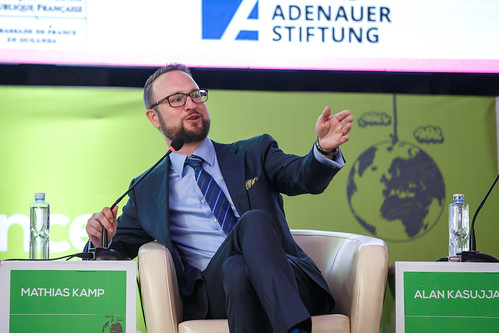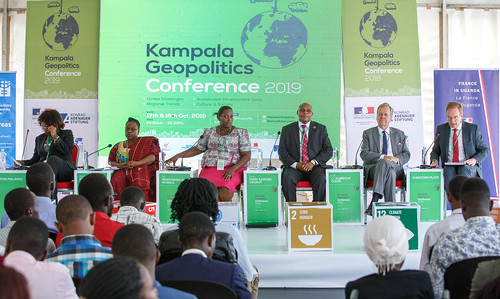Conference Summary
The Kampala Geopolitics Conference is a two-day academic public event discussing current geopolitical questions and trends. It is inspired by the successful event “Geopolitics of Nantes” in France. The conference will be held at the emblematic University of Makerere, one of oldest and most prestigious universities in Sub-Saharan Africa, where many African leaders were trained. The partners involved include: The Embassy of France, Konrad-Adenauer-Stiftung (KAS), Makerere University, UN Women Uganda, Alliance Française Kampala and Reach a Hand Uganda. The conference aims at creating a high-level, interactive and dynamic platform for dialogue and free exchange of ideas cutting across contemporary, local and international geopolitics. Experts from Uganda and the African continent will be joined by international researchers to engage in participatory and documented debates on global topics.
The inaugural Kampala Geopolitics Conference took place in October 2018 and was the first of its kind conference held in Uganda.
Building up on last year´s success, the Kampala Geopolitics Conference 2019 will take place on the 17th and 18th of October. This year’s event will host 18 roundtables and further exchange platforms on a variety of topics relating to Global Challenges, Regional Trends, the Sustainable Development Goals, and Culture and Society.
The conference will feature 18 panels and will attract thousands of participants from Uganda and beyond. The targeted audience is the general public with special focus on students, academia, representatives from civil society and media, political decision-makers and the diplomatic community.































